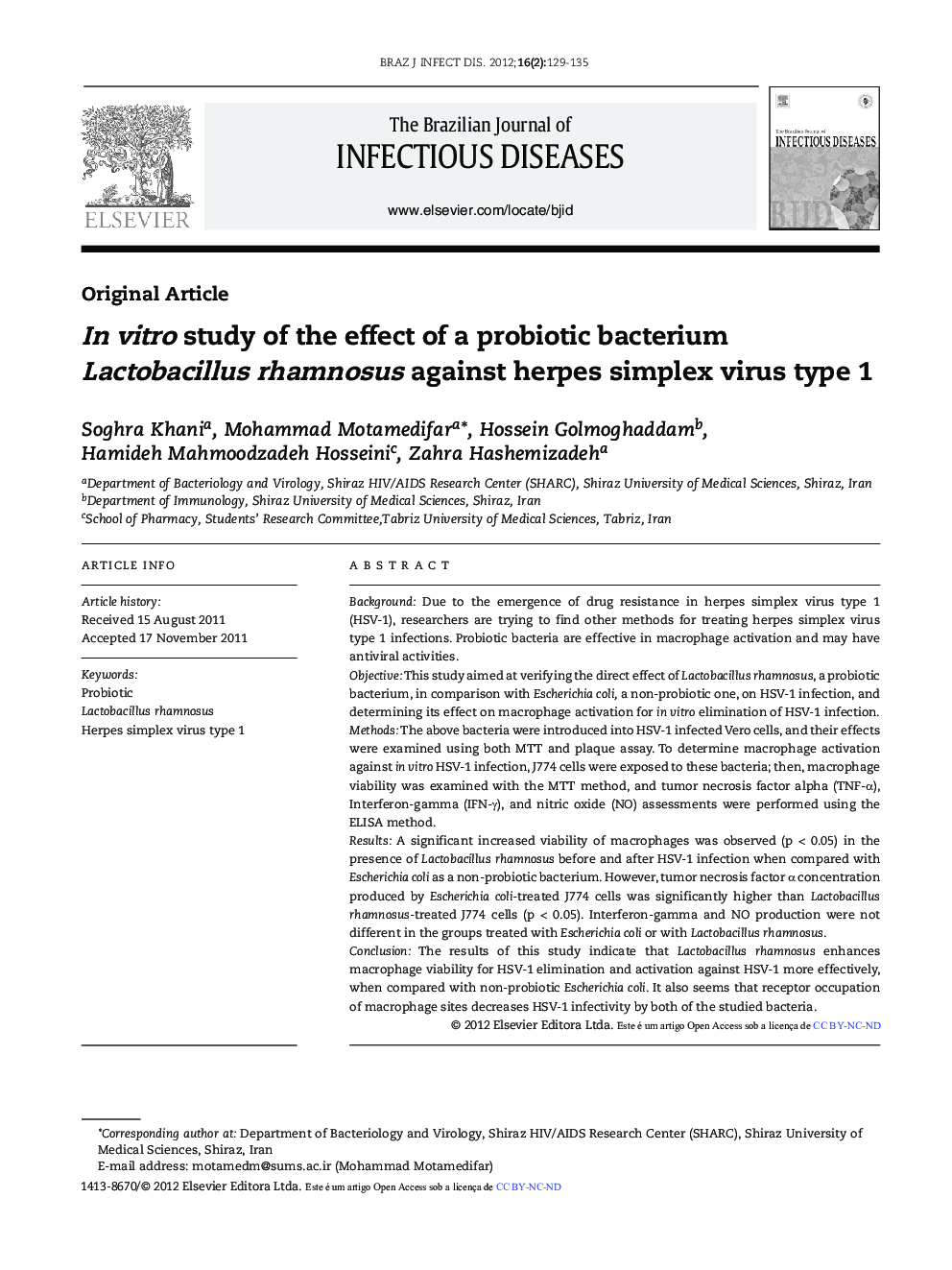| Article ID | Journal | Published Year | Pages | File Type |
|---|---|---|---|---|
| 3344144 | The Brazilian Journal of Infectious Diseases | 2012 | 7 Pages |
BackgroundDue to the emergence of drug resistance in herpes simplex virus type 1 (HSV-1), researchers are trying to find other methods for treating herpes simplex virus type 1 infections. Probiotic bacteria are effective in macrophage activation and may have antiviral activities.ObjectiveThis study aimed at verifying the direct effect of Lactobacillus rhamnosus, a probiotic bacterium, in comparison with Escherichia coli, a non-probiotic one, on HSV-1 infection, and determining its effect on macrophage activation for in vitro elimination of HSV-1 infection.MethodsThe above bacteria were introduced into HSV-1 infected Vero cells, and their effects were examined using both MTT and plaque assay. To determine macrophage activation against in vitro HSV-1 infection, J774 cells were exposed to these bacteria; then, macrophage viability was examined with the MTT method, and tumor necrosis factor alpha (TNF-α), Interferon-gamma (IFN-γ), and nitric oxide (NO) assessments were performed using the ELISA method.ResultsA significant increased viability of macrophages was observed (p < 0.05) in the presence of Lactobacillus rhamnosus before and after HSV-1 infection when compared with Escherichia coli as a non-probiotic bacterium. However, tumor necrosis factor α concentration produced by Escherichia coli-treated J774 cells was significantly higher than Lactobacillus rhamnosus-treated J774 cells (p < 0.05). Interferon-gamma and NO production were not different in the groups treated with Escherichia coli or with Lactobacillus rhamnosus.ConclusionThe results of this study indicate that Lactobacillus rhamnosus enhances macrophage viability for HSV-1 elimination and activation against HSV-1 more effectively, when compared with non-probiotic Escherichia coli. It also seems that receptor occupation of macrophage sites decreases HSV-1 infectivity by both of the studied bacteria.
